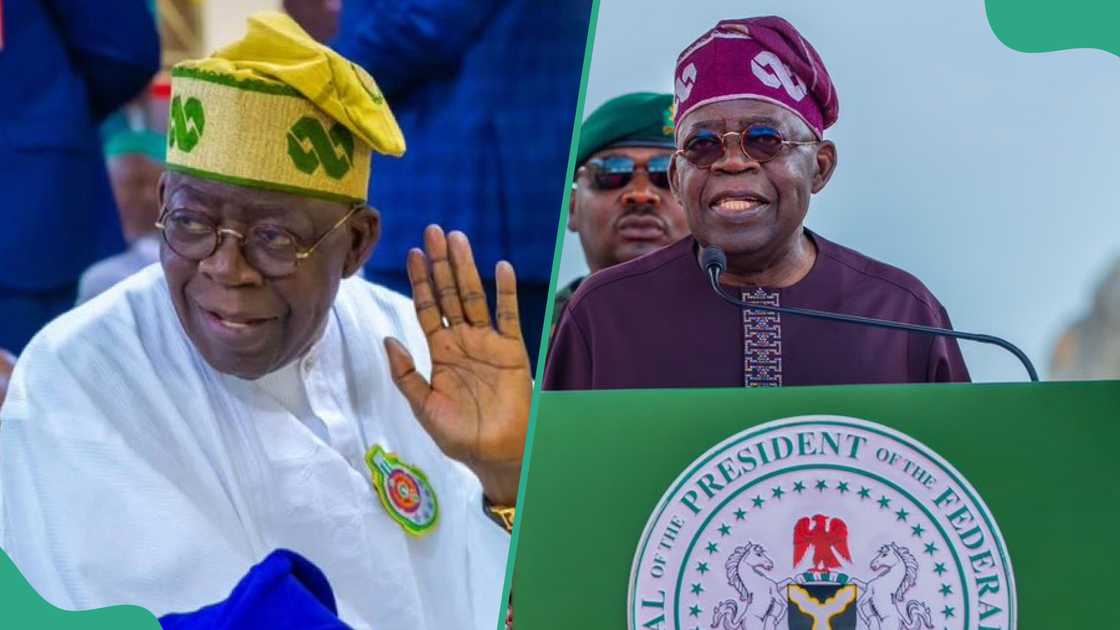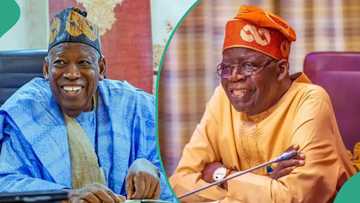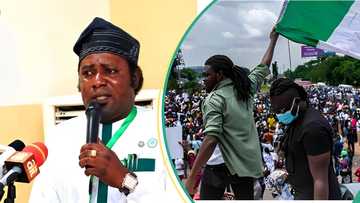Hunger Protest: Eight Things Tinubu Has Done So Far
President Bola Tinubu-led Federal Government has taken at least ten steps to prevent the planned 10-day hunger protest tagged "Days of Rage", scheduled to start on August 1. The protest, organized by the Take It Back movement, aims to address hunger and bad governance in Nigeria.
However, top government officials, groups, and religious bodies have expressed concerns that individuals with ulterior motives could hijack the protest. These concerns have led to calls for caution and alternative solutions to address the issues.

Source: Twitter
The government's proactive steps aim to mitigate potential risks and maintain stability in the country.
IGP warned against hunger protest
Inspector General of Police Kayode Egbetokun has called on groups planning to participate in the nationwide protest to provide their details to the Commissioners of Police in their respective states.
PAY ATTENTION: Click “See First” under the “Following” tab to see Legit.ng News on your Facebook News Feed!
This request aims to ensure that the protest remains peaceful and maintains public safety and order.
Egbetokun acknowledged the constitutional right of Nigerian citizens to peaceful assembly and protest while also emphasizing the need for prior notification to the police to prevent any potential disruptions or security threats.
Below are the highlights of the steps taken by President Tinubu to avert the protest so far.
Selling of 50kg bag of rice for N40,000
The Federal Government reduced the price of a 50kg bag of rice to N40,000, a significant slash from the original market price. This move is part of the government's efforts to address the growing discontent among Nigerians and quell the planned August 1 protests.
The government has made significant investments in agriculture, expecting the prices of food items to reduce, especially with the onset of the rainy season. With 20 trucks distributed to each state for onward distribution, the government appeals to Nigerians to shelve the planned protest, as it is working to address the challenges in the nation.

Read also
Full List: 2023 Opposition presidential candidates who supported anti-Tinubu, hunger protests
Sales of crude oil to Dangote in naira
President Tinubu has directed the Nigerian National Petroleum Company (NNPC) Limited to sell crude oil to the Dangote refinery and other upcoming refineries in naira. This move is expected to significantly impact the downstream oil sector, with experts predicting a crash in the prices of domestically refined petroleum products.
Operators in the sector have commended the approval, believing it will boost domestic refinery output, increase foreign exchange reserves, and strengthen the naira. The move is seen as a positive step towards reducing the country's reliance on imported petroleum products and promoting local refining capacity.
Tinubu meets APC governors
President Tinubu met with governors from the All Progressives Congress (APC) at the Presidential Villa in Abuja to address the growing calls for nationwide protests against economic hardship. The meeting was held under the auspices of the Progressives Governors Forum.
The discussion aimed to find solutions to the country's economic challenges, which have led to increasing demands for protests. The meeting was a strategic move to address Nigerians' concerns and find ways to alleviate the economic hardship, thereby preventing the planned protests.
Tinubu suspends import duties on food importations
President Tinubu has taken steps to mitigate the effects of inflation in Nigeria by suspending import duties on food and essential commodities. This move is aimed at cushioning the impact of rising prices on Nigerians.
Following his earlier announcement, Tinubu implemented the duty removal on Monday, specifically targeting food importation. This decision is expected to reduce the cost of food items and provide relief to Nigerians struggling with the current economic challenges.
Tinubu meets traditional and religious leaders
President Tinubu held emergency meetings with prominent traditional rulers and Ulamas (Islamic religious scholars) at the Aso Rock Villa in Abuja. The meetings were part of the government's efforts to prevent the planned hunger protest, scheduled to take place from August 1 to 10, from happening nationwide.
The President's discussions with these influential leaders aimed to address Nigerians' concerns and find solutions to the country's economic challenges, thereby averting the need for protests. The government hopes to leverage their influence to maintain peace and stability nationwide by engaging with traditional rulers and religious scholars.
Hunger protest: Other Tinubu actions so far
- Youth Internship Scheme initiated by the NDDC and N50,000 monthly stipends
- Immediate restoration of blocked SIMs over NIN linkage
- Signing of the new minimum wage into law
Opposition leaders who endorsed hunger protest
Legit.ng earlier reported that President Tinubu's one-year in office has been challenging for many Nigerians, as inflation has consistently increased. The president has swung into action as he announced the removal of the fuel subsidies on the day of his inauguration and floated the currency.
The two moves fronted Tinubu's economic reform. He also took several steps in which he appealed to Nigerians to endure the pain and said that things would soon get better. However, the cost of food continued to multiply, leading to the call for a hunger protest.
PAY ATTENTION: Stay Informed and follow us on Google News!
Source: Legit.ng





